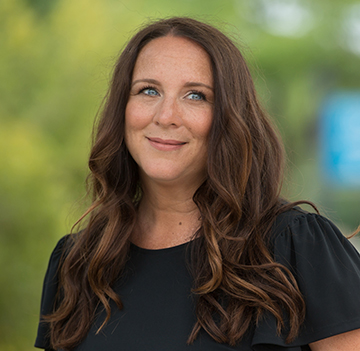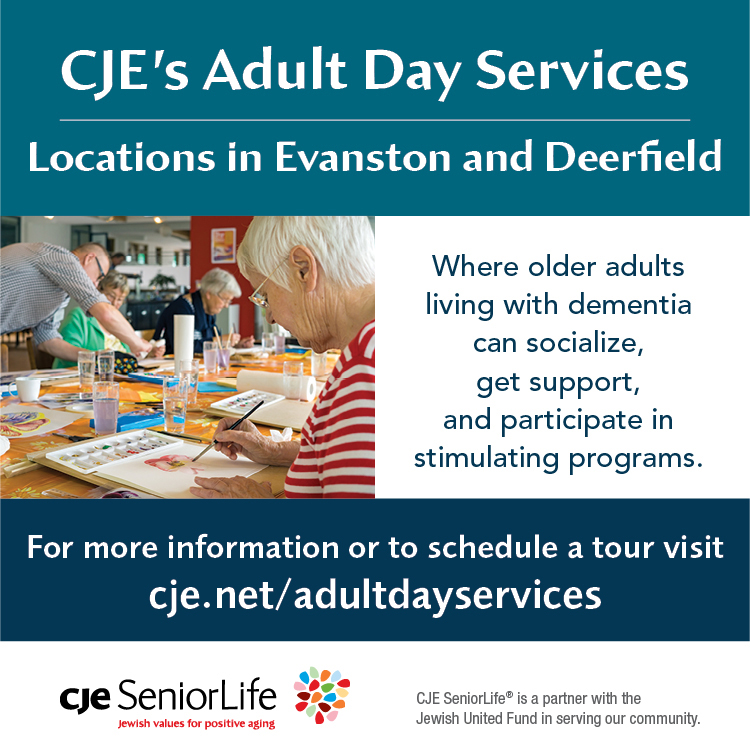
Cathy Cassata specializes in health, mental health, and human behavior. She connects with readers in an insightful and engaging way.
Communities provide options when one spouse requires more care than the other
Lynne Bugai’s parents, Bud and Joanne, were in their 80s and married for 63 years when her dad decided they could no longer safely stay in their Park Ridge home.
Over the course of a decade, Bud had survived bypass surgery, a heart attack, and stroke. He functioned well despite breathing difficulties and declining eyesight. However, Joanne’s osteoporosis and rheumatoid arthritis became so severe that she could no longer move around on her own. Additionally, her dementia began to take a toll.
“When my mom started having difficulties, it became hard for my dad to care for her and get her to the doctor on his own,” Bugai says. “My dad realized they needed more than he could provide at home.”
They looked at moving into a senior living community, but they were in a quandary. Joanne needed more help than Bud, but they didn’t want to be separated.
Nothing is harder than separating a couple like Bud and Joanne, who have been together for decades. Yet, as couples age, often one person requires more care than their partner.
Couples in these situations face tough choices: Can a healthy spouse move to a nursing facility with a less-healthy spouse? Do they move to separate areas of the same community? Should they opt to age in place with in-home care? And how much will it cost?
Medical and cognitive concerns
Victoria Braund, MD, director of the division of geriatrics at NorthShore University HealthSystem, says Bugai’s parents represent what many couples go through. It can be tough to find an appropriate living situation when one partner has physical problems and the other has cognitive issues.
She says people with health issues usually fall into two categories: below the neck and above the neck. The below-the- neck category includes people who have medical conditions, such as cancer, heart, kidney, or breathing issues. “Generally, those folks are pretty sharp. They can manage their medications and make decisions for themselves,” Braund says.
People with conditions above the neck, such as those related to the brain, may struggle with memory, insight, judgment, and behavior.
“Generally, we have a conflict with one spouse having the medical problems and the other spouse [cognitive] problems, so their care needs are different,” Braund says. “The biggest challenge is how to keep them together but also get their care needs met.”
In some cases, choosing to age in place with in-home care may be the best option for couples. In other cases, a senior living community might provide the best range of care. “It’s a challenge,” Braund says. “Talk with others who have done it before — and try to plan ahead.”
Braund suggests meeting with an elder law attorney for financial guidance early on. Senior living communities comewith a range of costs and commitments, and it’s important to fully understand any contracts before you sign them.
Finding the right place
Separating the couple is not always necessary, says Nadia Geigler, chief executive officer of The Admiral at the Lake, a senior living community in Chicago. Instead, spouses may be able to continue living together while receiving different levels of care.
“In many cases, bringing services into the unit can be a wonderful alternative,” she says.
Complications arise when one person in the couple needs skilled nursing. This often requires separation due to Illinois Department of Public Health requirements that skilled nursing occupants have a qualifying skilled nursing need. Plus, some skilled nursing units may be licensed for single occupancy.
“The biggest challenge is how to keep them together but also get their care needs met.”
For those in independent living facilities like The Merion in Evanston, a home healthcare company is located on the premises, so when residents need more care, an aide can provide it in their room.
“A couple may both come in independent, and someone might age differently. So we just up the healthcare but keep them in the same apartment,” says Maria Hammer, executive director at The Merion.
Staying together
In January 2019, Bugai’s parents moved into The Sheridan at Park Ridge, which offers independent living with healthcare assistance and memory care onsite.
At the Sheridan, both of Bugai’s parents got their needs met. Joanne went into memory care daily to partake in activities for her dementia. She also got assistance getting dressed, going to the bathroom, and showering, while Bud appreciated not having to cook or clean. Nurses also ensured he took his medication in a timely manner.
“Most of all, they were willing to let my dad live in the space with my mom. He couldn’t bear it if my mom had to go to another building without him,” Bugai says. “The staff would bring her to memory care when needed, and they would take care of my dad’s needs too.”
“For the first time in three years, it brought me hope,” Bugai says. “I felt like I had support finally as a caretaker. The people there were an extension of my family.”
Unfortunately, Bud died from a heart attack just three weeks after they moved into the Sheridan. Joanne immediately moved into the memory care unit. She died seven months later.
“It was so sad to lose them so close together, especially since we were shocked by Dad’s death,” Bugai says. Yet, she adds, she remains grateful that her parents were able to stay together until the end.
While finding a place that can meet the needs of both spouses isn’t always simple — especially when their level of care is different — clearly understanding what communities offer can make the decision easier.








